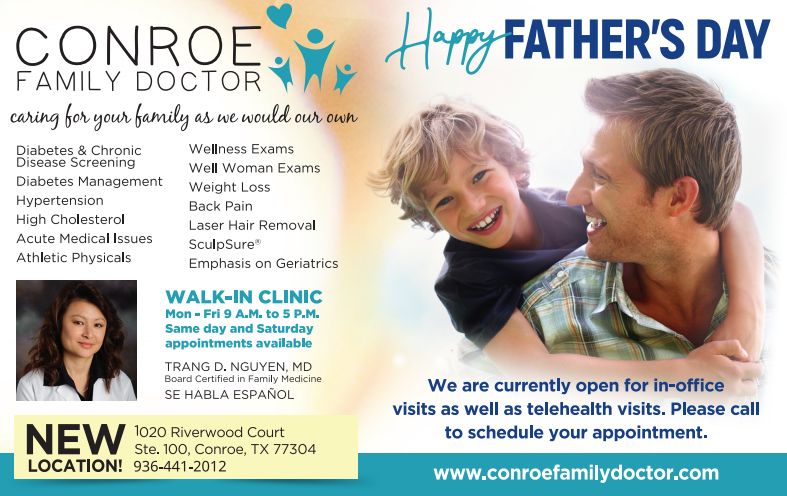
September 7, 2021
in Blog
The deadly dangers of high cholesterol are well known. Elevated levels increase our risk of having a heart attack and of developing heart disease. Medications are one effective way of managing our cholesterol but should be a last resort. Lifestyle changes and conscientious choice of food can be more effective and come with additional benefits. With heart disease being the most frequent killer of men and women in the United States, it’s vital to take proper steps to keep your cholesterol in check.
Steps You Can Take To Manage Your Cholesterol
There’s a lot of poor information available about medical concerns in general. Methods of controlling our cholesterol levels come up in many areas. It’s essential to have the correct information to be able to control this condition effectively. Below we’ve provided a few steps you can take to keep your cholesterol in check.
It Starts With Dietary Choices
Cholesterol only comes from one source, the foods we eat. This fact means your primary angle of attack on this condition is going to be changing your diet. Consider the following tips:
- Reduce saturated fats – This form of fat can be found in full-fat dairy products and red meats. By limiting the amount you get in your diet, you’ll reduce your (LDL) cholesterol. The type is commonly known as “bad” cholesterol.
- Eliminate trans fats – This type of fat appears in processed foods, especially cakes, crackers, and cookies. Partially hydrogenated vegetable oil has been banned from appearing in foods as of Jan 1, 2021. This oil was a significant source of trans fats.
- Soluble Fiber – This form of fiber is found in Brussel sprouts, pears, apples, oatmeal, and kidney beans. It’s excellent at scrubbing away cholesterol found in your bloodstream.
- Whey Protein – This protein is commonly found in dairy products. Studies indicate it may be the source of many health benefits from dairy. LDL cholesterol, blood pressure, and total cholesterol levels all benefit from having it in your diet.
Get Out And Exercise
While it may make your eyes roll every time you see exercise on a ‘get healthy’ list, it’s there for a reason. Our bodies are built to move and remain active. The evidence can be found in the countless health benefits that come from an active lifestyle. One of those important benefits is the reduction of LDLs, and the raising of HDL cholesterol. HDL stands for high-density lipoprotein. It’s the “good” form of cholesterol. Spending 30 minutes each day exercising can do wonders for your cholesterol. Good exercise options include:
- A brisk mid-day walk
- Use your bike instead of your car
- Take up a sport
- Find people to work out with to stay motivated
Speak To Your Primary Care Provider For Further Guidance
These tips cover the basics. If you’re a smoker, another critical step is quitting your tobacco habit. Smoking, even without high levels of cholesterol, increases your chance of heart disease. Add high cholesterol to the mix, and your risk increases significantly. Speak to your primary care provider to get additional health tips.

A typical lecture received from our physicians as we get older is to watch our salt. Sadly this doesn’t mean watching it as it adds flavor to our food. Instead, it means we need to monitor our intake to ensure that it doesn’t affect our health. Salt is an essential nutrient for sustaining good health. At one point, it was hard enough to obtain. It was more valuable than gold. Today it’s found in significant quantities in almost everything we consume. Unfortunately, there are serious health consequences for some who eat too much salt.
Understanding How Sodium Intake Affects Our Health
Our kidneys regulate the salt in our bodies. It plays a distinct role in maintaining the balance of fluids in the body. Our nervous system also relies on it for helping our muscles function, and the nerves transmit information. When there’s too much salt in our system, it can directly affect the amount of water in our blood vessels. This increase, in turn, can increase blood pressure, which isn’t good for our hearts.
The symptoms of high blood pressure aren’t always easy to identify. This feature has led to it being labeled as “the silent killer.” The increased pressure can cause our blood vessels to stretch, damaging the walls. It can also lead to the build-up of plaque in our arteries, making it difficult for blood to pass. This change, in turn, leads to the pressure further increases in our veins. As an aside, the increased water levels can result in weight gain and bloating.
Hypertension is a major contributing factor in the development of heart disease. This condition is the leading killer of people all over the world. Only 10% of people will manage to escape the development of high blood pressure over their lifespan. The most frequent sources of salt in the average diet include:
- Packaged food
- Restaurant food
- Naturally occurring sources in food
- Added to food when cooked at home
It can be difficult to avoid high levels of sodium in your diet as a result. The majority of salt is already in the food you eat, making it challenging to reduce. Regrettably, reducing the amount of salt you eat is an integral part of lasting health. Reducing the amount of salt you consume to under 1500 mg/day can lower your blood pressure by up to 25.6%.
The Science Doesn’t Lie
The reports that indicate that salt intake isn’t a severe concern are mainly inaccurate. Their data often miscalculates the amount of sodium consumed by the subjects. They also tend to focus on those with ailing health rather than the general population. If you want to know if salt intake is a concern for you, speak to your physician. They’ll be able to determine if you need to watch the amount of salt you consume. People worldwide experience complications related to high sodium intake, and you may be one of them. Checking with your physician will ensure you can take action to protect your health by reducing your intake.
Conroe Family Doctor in Conroe, Texas Wishing you and your family a Safe and Happy 4th of July! Stay Safe & Healthy from COVID-19 and fireworks this 4th of July. We are open for in-office visits as well as telehealth visits. Please call (936) 441-2012 or go On-Line www.conroefamilydoctor.com to schedule your appointment.
Conroe Family Doctor in Conroe, Texas Hope’s you and your Family have a Happy Father’s Day! Stay Safe & Healthy from COVID-19 this Father’s Day. We are open for in-office visits as well as telehealth visits. Please call (936) 441-2012 or go On-Line www.conroefamilydoctor.com to schedule your appointment.

While there’s little question among the professionals that vaccinations are important, many parents still show concern at the prospect of getting the COVID-19 vaccine for their children. This concern often seems supported by the fact that younger children tend not to show symptoms if they get the disease and are less likely to die or be hospitalized from infection. In spite of this, experts state that it is essential that your teens, and eventually your younger children, receive the vaccination for their own health and for those around them.
Three Reasons Experts Say You Should Vaccinate Your Teen Against COVID-19
Not only is it important, but it’s also critical that those who are over the age get vaccinated as soon as possible. COVID-19 isn’t an individual problem; it’s a concern that affects almost everyone in the world. Eliminating it as a threat is a responsibility all of us share, and the way we help with it is by masking up, social distancing, and getting the vaccine for our families as soon as possible. The following three reasons are why it’s essential your child get vaccinated and how it can help protect others.
- COVID-19 Vaccination Protects Teens From A Dangerous Infection – While it’s true that younger people have a reduced risk of infection, that doesn’t mean the chance is zero. Those between the ages of 5 and 17 rep represent nearly 10% of all COVID-19 cases that have happened in the United States. While death is uncommon, it is not unheard of. Teens, in particular, are at risk for Multisystem Inflammatory Syndrome in Children (MIS-C).
- The More Of Us That Receive Vaccinations, The Closer We Get To Herd Immunity – Every one of us that gets a vaccination is one more person that is both immune to the disease and incapable of spreading it to others. Those who are unable to receive the vaccination due to unavailability or other medical conditions can be protected by those who can receive their vaccinations. With those under 18 comprising 24% of the population in the US, teens play an important role.
- COVID-19 Is Mutating – Vaccination Can Help Fight New Strains – By reducing the spread of the original COVID-19 virus, we limit the possibility that it will have a chance to mutate. The more people who can become infected by and carry the disease, the more chances there are that it will continue to slip past our defenses.
Taking these into consideration, it’s absolutely clear that we must vaccinate our children as soon as possible, in addition to being vaccinated ourselves. With all of us working to beat it, we can put an end to the pandemic and get back on the way to a safer world for all of us.
Bring Additional Questions About Vaccination To Your Health Provider
If you still have concerns about vaccinating your children, reach out to your health provider with your worries. They’ll be able to provide clear information about the safety of your child and how vaccinations can help. Act soon to ensure that your children, your elderly, and all your loved ones are protected from COVID-19. The pandemic isn’t over, but with us all working together, it can be.






